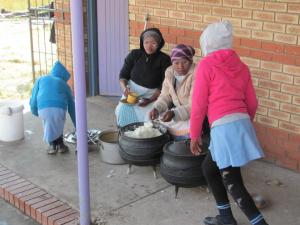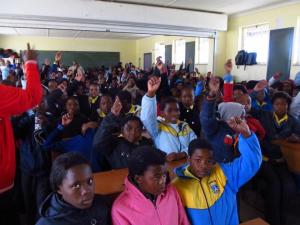 The LAND project integrates sustainable food production with cooperative development and combines health education with agriculture education, merging food security with economic security. Health is inextricably linked to nutrition, agriculture, and education. The project has a special focus on children, as children are the future of the region and also central contributors to family farming.
The LAND project integrates sustainable food production with cooperative development and combines health education with agriculture education, merging food security with economic security. Health is inextricably linked to nutrition, agriculture, and education. The project has a special focus on children, as children are the future of the region and also central contributors to family farming.
We aim to empower children with the knowledge, skills, and experience needed to live healthy lives.
Our successful initiatives to improve nutrition thus far include:
- A quarter acre school garden implemented at the Kumanzimdaka Primary School that provides fresh fruits and vegetables for school lunches and a learning space for agriculture, nutrition, and environmental education. The garden emphasizes diverse annual and perennial crops (that are climate resilient) and serves as a safe, risk free demonstration space for the community as a whole. The garden is currently managed by local women in colla
 boration with the school.
boration with the school. - 100 school children trained in basic nutrition and eating a balanced diet.
Our upcoming projects involve:
- An insect farming initiative – Mealworms are a sustainable and economical protein feed for chickens that can be raised almost exclusively using agricultural waste products. Using mealworms to supplement poultry feed can boost production and health, supporting livelihoods for rural chicken farmers.
- A food preservation project – Inexpensive solar dryers can extend the shelf life and value of locally grown produce, improving year-round food security and income. This project will involve collaboration with cooperatives to design, test, and implement a solar vegetable and meat drying techniques for the Eastern Cape.
- An efficient cook stoves sewing project – The Wonderbag is a non-electric, heat-retention cooker that allows food that has been brought to a boil, to continue cooking after it has been removed from the fire or stove. Wonderbags can easily be manufactured in rural settings with non-electric pedal sewing machines using inexpensive materials. Wonderbag production will generate local income and use reduces the need for fuel (which can be expensive and/or time consuming to collect) and greenhouse gas emissions.

